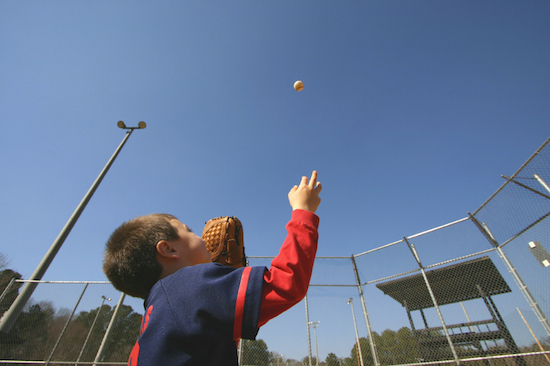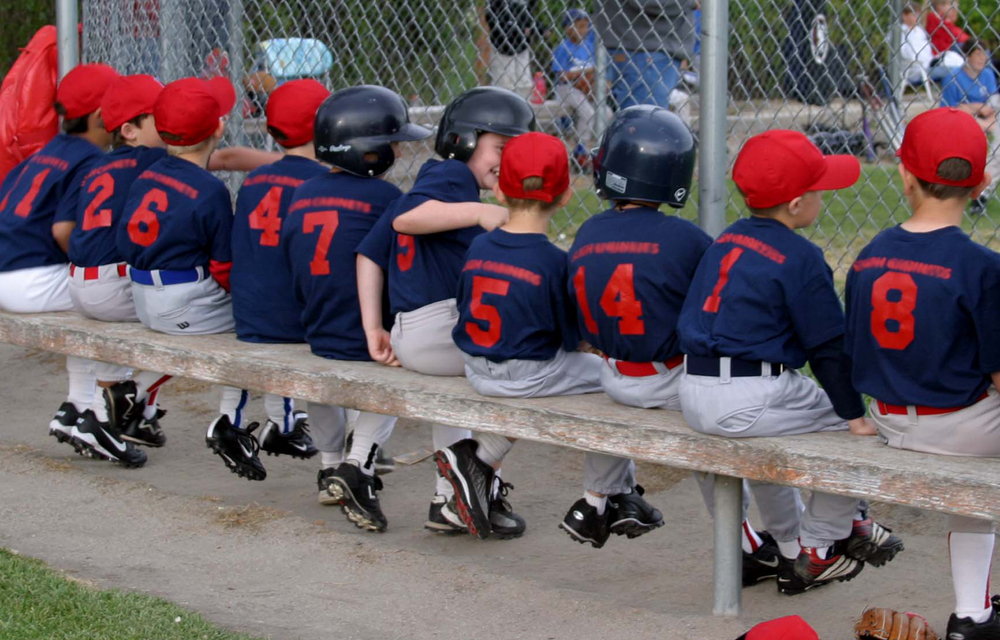Youth Sports Improves Self-Regulation In Kids
By Dan Peterson, TeamSnap's Sports Science Expert
Getting our kids involved in youth sports has many physical health benefits, but the opportunities for their psychological and behavioral growth may help them even more in their future. Learning to follow rules, cooperate with others and work towards a common goal can set them up for a lifetime of success. Researchers at the University of Montreal just confirmed that there are even short-term gains, like from kindergarten to fourth grade, for kids who participate in extracurricular activities.
Learning self-regulation, “the ability to act in your long-term best interest, consistent with your deepest values”, can send a young student on a successful path of resisting short-term temptations while pursuing longer-term goals. Linda Pagani, a professor in the school of psychoeducation at the University of Montreal, was interested in the role of structured activities, particularly team sports, on a child’s maturity growth curve.
"Our goal was to answer two questions: firstly, does participation in extracurricular activities in kindergarten predict fourth grade self-discipline, and secondly, do kindergarten self-discipline characteristics predict fourth-grade participation in sports?" said Pagani.
She reviewed data from 2,694 Canadian children born between 1997-1998 that were part of the Quebec Longitudinal Study on Child Development. When these kids reached kindergarten, typically at age 6, they asked their teachers to fill out surveys about each student’s classroom engagement, physical aggression, impulsivity and emotional distress. Then, they turned to the kids’ parents to find out about their structured and unstructured activities at home, including sports participation. The process was repeated four years later when the students reached fourth grade.
"We worked with information provided by parents and teachers to compare kindergarteners' activities with their classroom engagement as they grew up," said Pagani. "By time they reached the fourth grade, kids who played structured sports were identifiably better at following instructions and remaining focused in the classroom. There is something specific to the sporting environment—perhaps the unique sense of belonging to a team to a special group with a common goal—that appears to help kids understand the importance of respecting the rules and honoring responsibilities."
Interestingly, Pagani and her team found the relationship between sports and self-regulation went both directions.
"Children who were involved in sports at kindergarten, or in fact who were involved in any kind of structured activity, were likely to be involved in teams sports by age ten,” said Pagani. “However, involvement in unstructured activities at kindergarten had no bearing on the child's future. Across the board, we found that children who had better behaviour in the kindergarten class were more likely to be involved in sport by age ten. Nonetheless, we found that those children who were specifically involved in team sports at kindergarten scored higher in self-regulation by time they reached fourth-grade."
The research has been published in the American Journal of Health Promotion.
The lessons of youth sports go far beyond winning and losing. Better attention, delayed gratification, cooperation and teamwork create not only better athletes but also better students. Pagani recommends schools continue to offer plenty of school sports options and encourages parents to enroll their kids in organized youth sport activities.
"Programs to help parents develop their child's self-regulation skills and the availability of extracurricular sports programs as early as kindergarten could help decrease the risk of kids being left behind," Pagani said. "We also hope policy makers consider our findings in order to improve access to parks and playgrounds, where children and their families can engage in sporting activities, to improve access to K-12 enrichment programs that target self-regulation skills, and to improve the promotion of active schools and communities generally-speaking."
NEW! Free Sports Organization Resources
All of TeamSnap's ebooks, articles, and stories in one place. Access Now
Similar Articles:

Calcium and Vitamin D: Bone Health in Young Athletes
By Dan Peterson, TeamSnap's Sports Science Expert …
Read More

The Science of Catching Fly Balls
By Dan Peterson, TeamSnap's Sports Science Expert …
Read More

Youth Sports Improves Self-Regulation In Kids
By Dan Peterson, TeamSnap's Sports Science Expert …
Read More
